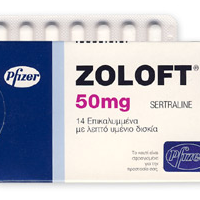Louisiana Sues Pfizer over Alleged Zoloft Fraud

Piggybacking on a private class-action lawsuit, the state of Louisiana last week filed suit against giant drug maker Pfizer (2012 revenues: $58.98 billion), alleging that it defrauded the state by means of “false, misleading, unfair, and deceptive acts in the marketing, promotion, and sale” of the big-selling antidepressant Zoloft. Filed by State Attorney General Buddy Caldwell, the complaint contends that Pfizer knew early on that Zoloft was ineffective at treating depression, but pushed for FDA approval anyway, eventually causing Louisiana to spend millions of dollars via its Medicaid program for a drug that does not work, according to the complaint.
Zoloft, known generically as sertraline, is a selective serotonin reuptake inhibitor (SSRI), as are Prozac, Paxil, Celexa and others. Serotonin is a neurotransmitter, a chemical that allows nerve cells, including those in the brain, to communicate with one another. Scientific studies have found that people suffering from depression tend to have low levels of serotonin. SSRIs, including Zoloft, raise serotonin levels in the brain, which researchers believe should help to alleviate depression.
From the beginning, claims the complaint, Pfizer knew it had “serious issues with efficacy,” citing internal corporate memos stating that during early trials “‘there is still no striking evidence of beneficial drug effect with placebo often being the superior treatment.’” Despite the poor early test results, Pfizer chose to go forward with a request for FDA approval, but engaged in deception and fraud to obtain it, according to the complaint.
The lawsuit claims that Pfizer pursued a two-prong approach, publishing only data that supported Zoloft’s efficacy and engaging in a “ghostwriting program to misleadingly enhance Zoloft’s credibility.” Defining ghostwriting as “a process where someone with a vested interest in an article, like Pfizer, that does not want their association with the article to be known, provides a written draft to an author who then publishes the article under that author’s name.” The complaint alleges that Pfizer realized it could ensure Zoloft’s success by “manufacturing ‘research’ and articles that enhance Zoloft’s safety and credibility.”
Pfizer’s campaign was well known at the time, and a 2003 article in the British Journal of Psychiatry warned that “analyses of published results on antidepressant studies in recent years have made it clear that a considerable proportion of negative results are not published, to the extent that the sponsorship of a published study is now a demonstrable predictor of the findings of that study.”
Arguing that “Pfizer’s ghostwriting operation and its selective publication of data prevented healthcare providers, consumers, and ultimately the State of Louisiana from obtaining accurate information regarding the efficacy of Zoloft,” the complaint claims that Louisiana has been damaged by paying for Zoloft, a form of Medicaid fraud. The state seeks restitution, civil penalties and damages for unfair trade, negligent misrepresentation and fraud, and wants the court to order Pfizer to stop selling Zoloft through misrepresentations. Louisiana Medicaid spent $974 million on prescription drug reimbursements in 2012, according to the lawsuit.
Louisiana’s lawsuit is similar to a private class-action lawsuit filed in January 2013 against Pfizer that makes substantially the same factual allegations and cites many of the same internal corporate documents. Zoloft has also been linked to birth defects in children whose mothers took the drug while pregnant, and there are now more than 250 Zoloft lawsuits pending, many of which have been consolidated in multidistrict litigation underway in Pennsylvania. Pfizer has a history of “pushing the envelope” when it comes to aggressive drug marketing, and has paid large fines in the past for its behavior.
-Matt Bewig
To Learn More:
Louisiana Says Pfizer Lied About Zoloft (by Sabrina Canfield, Courthouse News Service)
Louisiana Zoloft Lawsuit (Schmidt & Clark, LLP)
Pfizer Pays $60 Million for Bribing Foreign Doctors (by Noel Brinkerhoff, AllGov)
Pfizer to Pay Largest Criminal Fine in History (by David Wallechinsky, AllGov)
- Top Stories
- Unusual News
- Where is the Money Going?
- Controversies
- U.S. and the World
- Appointments and Resignations
- Latest News
- Trump Orders ICE and Border Patrol to Kill More Protestors
- Trump Renames National Football League National Trump League
- Trump to Stop Deportations If…
- Trump Denounces World Series
- What If China Invaded the United States?






Comments